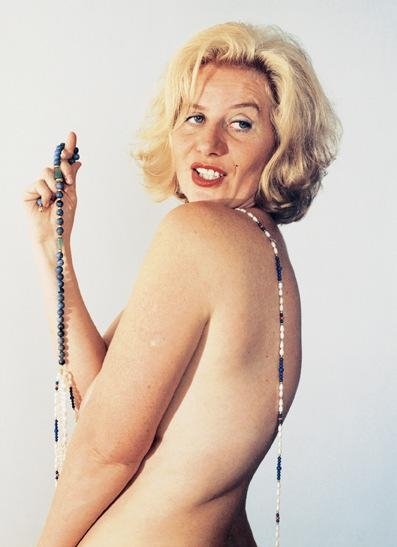And now
dal 25/11/2009 al 19/12/2009
Segnalato da
Tina Bara
Annemirl Bauer
Else Gabriel
Angela Hampel
Verena Kyselka
Christine Schlegel
Cornelia Schleime
Gundula Schulze Eldowy
Gabriele Stotzer
Erika Sturmer-Alex
Ramona Welsh
Karla Woisnitza
Angelika Richter
Beatrice E. Stammer
Bettina Knaup
25/11/2009
And now
Kunstlerhaus Bethanien (old venues), Berlin
The exhibition traces the work of a selected group of female artists from the GDR - among which some have been discussed only sparsely in the overall German art historical field. The exhibition shows work from the 1980s made under 'socialistic conditions of production' and as well as artistic developments and positions in the new social system of the 1990s. Furthermore, the show highlights the artists' statements and expressions in the 2000s.

Curated by Angelika Richter & Beatrice E. Stammer
Co-curated by Bettina Knaup
The exhibition and now traces the work of a selected group of female artists from the GDR – among
which some have been discussed only sparsely in the overall German art historical field. The exhibition
shows work from the 1980s made under “socialistic conditions of production” and as well as artistic
developments and positions in the new social system of the 1990s. Furthermore, the show highlights
the artists’ statements and expressions in the 2000s.
The exhibition and now leverages known names – yet at the same time rediscovers the
unconventional and highly individual approaches of the artists, their resistance strategies, subversion
and deconstruction of power. A strong focus lies on performative and interdisciplinary works from the
late 1980s.
Participating artists: Tina Bara, Annemirl Bauer, Else Gabriel, Angela Hampel, Verena Kyselka, Christine Schlegel,
Cornelia Schleime, Gundula Schulze Eldowy, Gabriele Stötzer, Erika Stürmer-Alex, Ramona
Welsh, Karla Woisnitza.
At the times of state socialism in the GDR, performance art was hardly visible. Until the late 1980s,
efforts to show this new type of art publicly were disrupted, and partly criminalized and supressed by
the officials. Improvisation was a necessity in the GDR and thus became an important factor in the art
practice that was not supported by the state.
Whereas aspects of male performance art in the GDR have been discussed in art history, the question,
what role female artists like Gabriele Stötzer, Cornelia Schleime, Christine Schlegel or Erika Stürmer-
Alex played, has still not been researched sufficiently. In what ways did these artists influence the
development of process-oriented art forms and artistical border crossing? The painter and sculptor
Erika Stürmer-Alex for example is admired by insiders of the GDR art scene, but almost unknown to
the broader public.
Even after the “Wende” in 1989, female artists from the GDR have still been widely overlooked. Up
until this day, it takes an effort to gain insight into the work of generations of female artists from the
GDR. The exhibition and now aims at counterbalancing this lack of knowledge and making changes in
society and art visible.
Fringe events
Readings with Gabriele Stötzer on 28 November at 5 pm and with Else Gabriel on 12 December at
5 pm at Künstlerhaus Bethanien, Berlin-Kreuzberg.
Screening in the movie theatre Kino in der Brotfabrik, Caligariplatz on 6 December at 6 pm.
The exhibition catalogue will be published by Verlag für Moderne Kunst, Nürnberg.
For further information please contact: artpress – Ute Weingarten
Phone: +49 (0)30 2196 1843
artpress@uteweingarten.de
Image: Tina Bara, marylin 2002-2006 © Tina Bara
Opening 26 November 2009, 7 pm
Künstlerhaus Bethanien
Mariannenplatz 2, Berlin
Wednesday - Sunday 2pm - 7 pm
free admission



